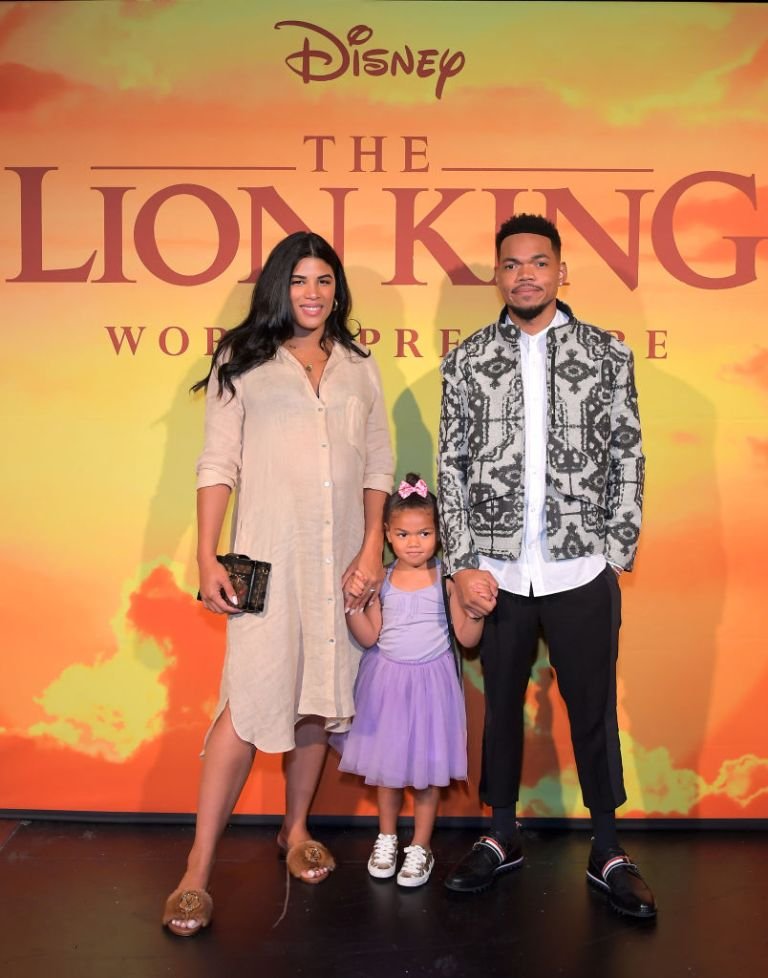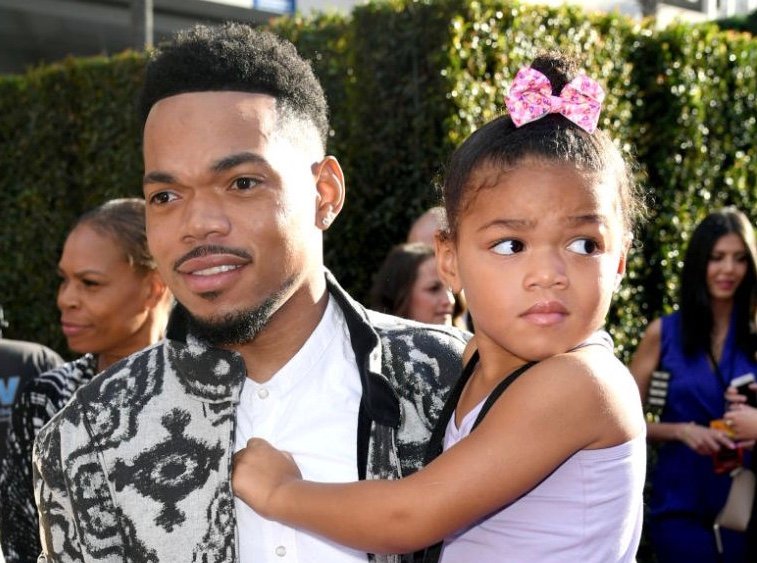It will be rather interesting for the September cover of Parents Magazine which features the Grammy award winner and philanthropist, Chance The Rapper along with his wife Kirsten Corley Bennett and their two daughters, Kensli and Marli. The 27-year-old, whose dad Ken Bennett ran Barack Obama’s senatorial campaign when Chance was just 8, has long been an advocate for social justice, who even launched his nonprofit Social Works with a million dollar donation to Chicago public schools.
The Bennetts had a Zoom interview with Parents to talk about parenting during the pandemic, the #BlackLivesMatter movement and more.
For us the highlight came when Parents asked Chance what he and his wife have been teaching their kids about this moment.
Chance responded by saying, “My kids are young. Mainly, we’ve been teaching Kensli to love herself, to understand that her opinion is important, to understand that Black is beautiful and that Black power is her superpower. Marli, I’ve just been trying to teach her how to walk.”

Also, Chance acknowledged that some people aren’t even aware of how they benefit from systemic racism and how his awareness of his own privilege came after he realized he’s been complicit in patriarchy.
I think freedom, or even just the lack of oppression and racism, starts with recognizing the humanity in others,” Chance told Parents. “And I think we’re kind of indoctrinated to look at people who aren’t in our same tier of social hierarchy as “other.” This time is calling into question everyone’s morality and everybody’s sense of complicity and the oppression of people at large. I think one thing that has helped me understand racism is realizing that people can adhere to racist systems and benefit from them without necessarily consciously doing so. And my understanding of that came from my being able to see how I could be complicit in patriarchy and sexism. When there are protests, they’re mostly for Black men. Statistics show that Black women are also brutalized at an extremely high rate or, in some cases, killed by racist police officers. So I think we’re starting to address many issues: racism, patriarchy, capitalism, colorism. Until we can recognize the stem of each problem and how we all work within the system, we can’t actually make it better.”

